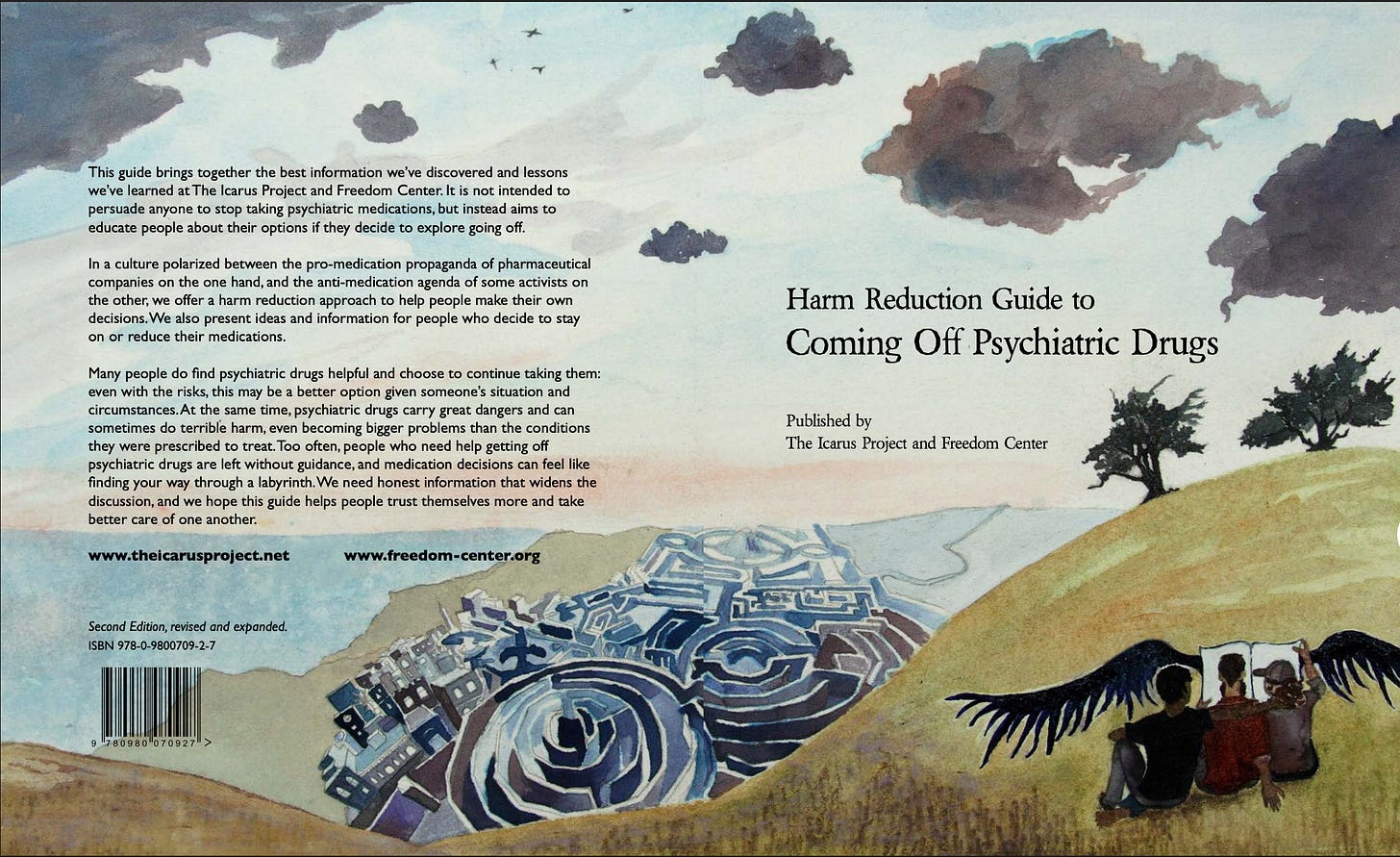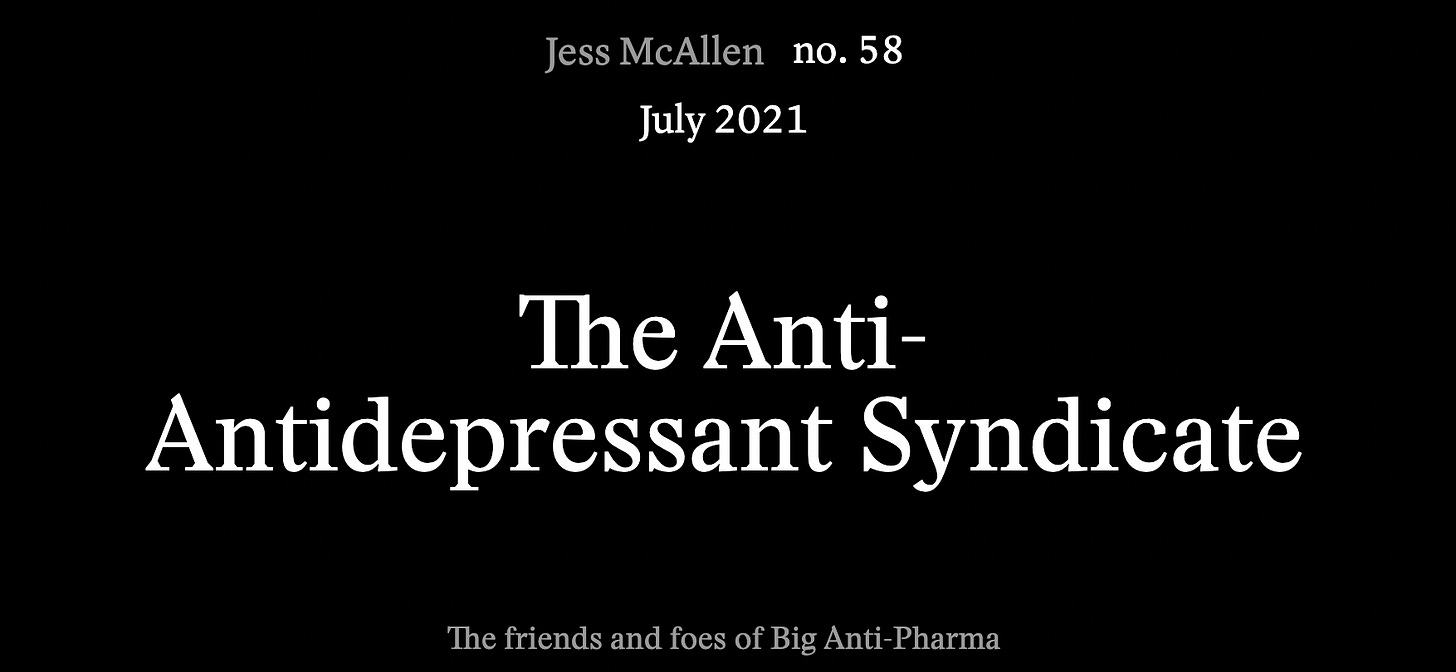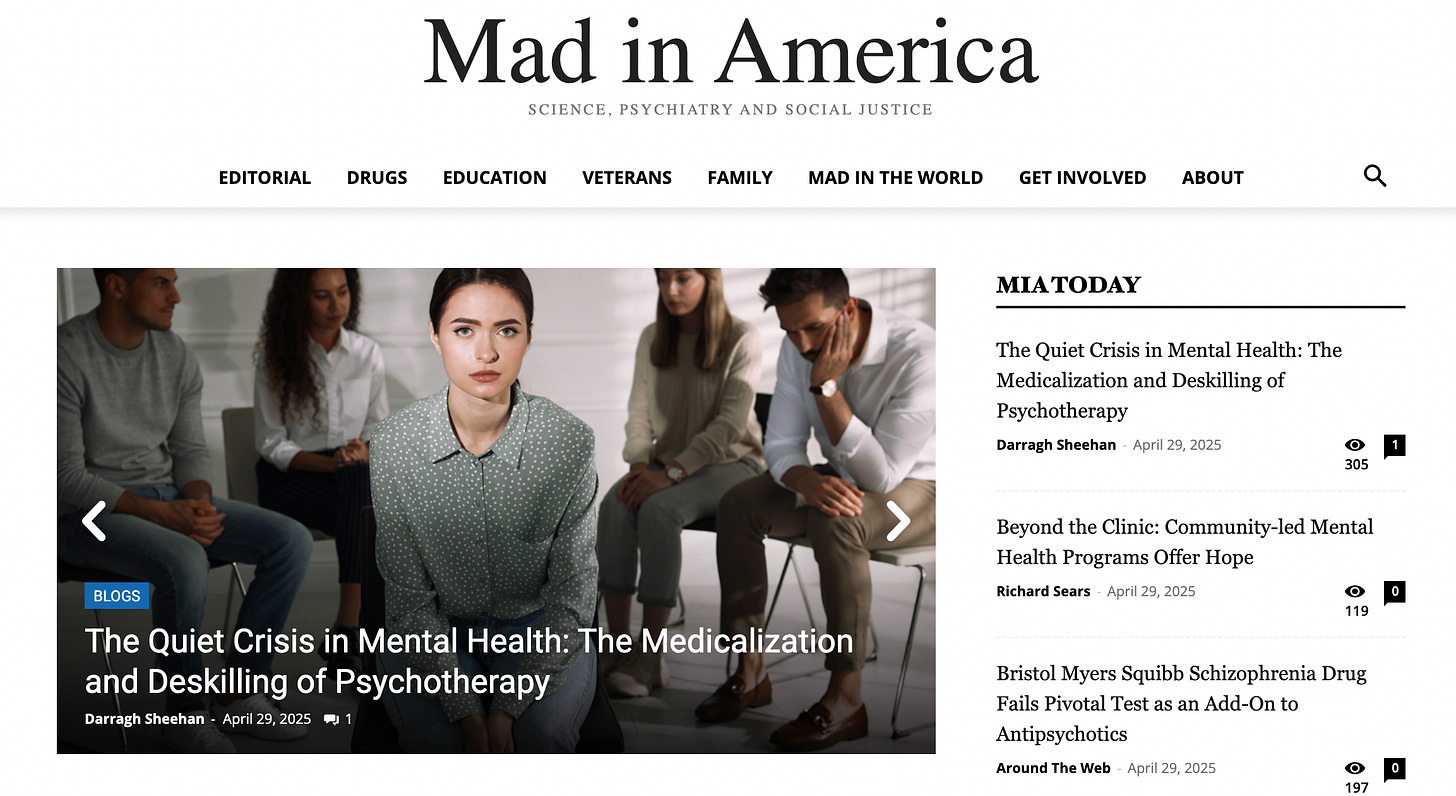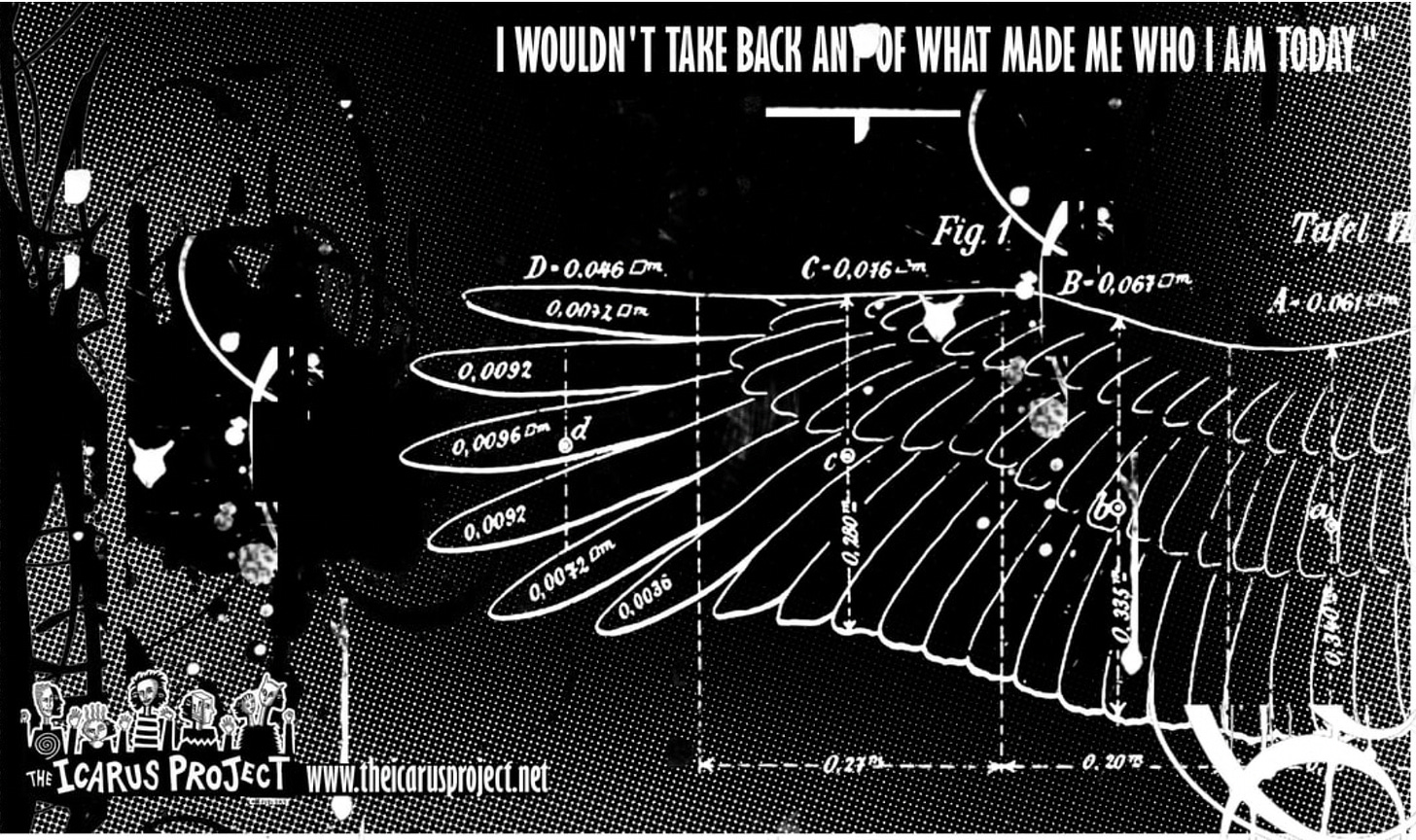Beyond Binaries: How The Icarus Project Made Space for Messy Truths
Before the culture wars hardened the lines, we made a home for multiple truths about madness, medication, and healing.
When we founded The Icarus Project in the early 2000s, one of our core principles — though we didn’t always have the language for it — was that people’s experiences with madness, drugs, psychiatry, and healing were multiple and often contradictory. Instead of trying to impose a single narrative, we created a container spacious enough to hold many truths.
We knew from the beginning: psychiatric drugs could be lifesaving and harmful. Some of us owed our survival to medications; some of us had been deeply wounded by them. Some of us needed alternatives to the medical model. Others needed critical access to psychiatric care, especially in the absence of other support systems. Most of us lived somewhere in the complicated, shifting space between.
The Icarus Project didn’t exist to push a party line — pro-medication or anti-medication. We existed to build a culture where people could speak honestly about what worked for them, what didn’t, and what they were still trying to figure out. We challenged the biomedical model not by replacing it with a new orthodoxy, but by insisting on dialogue, complexity, and respect for lived experience.
I’ve been thinking about this a lot lately, especially after reading Jess McAllen’s 2021 piece in The Baffler about the complicated politics of anti-psychiatry movements and the lingering influence of groups like CCHR. The article highlighted, in part, how hard it is for any critical psychiatry movement to avoid getting trapped in reactionary binaries: you’re either “pro-psychiatry” or you’re part of a fringe cult.
It reminded me of how easily public conversation collapses into sides — and how rare it is to find spaces like the one we tried to cultivate with Icarus, where nuance is possible and contradictions are survivable.
Similarly, platforms like Mad in America have played a crucial role in opening up critiques of the psychiatric system — but they can also feel polarizing at times. The tone of some of the discourse there can lean toward a kind of absolutism that leaves little room for people who live in complicated, ambivalent relationships to psychiatric care.
In contrast, when I was recently interviewed by Psych in the Margins, I reflected on the ways that The Icarus Project wasn’t just about being “for” or “against” psychiatry. It was about something deeper: building spaces for people to find each other across differences in experience, belief, and strategy. It was about refusing the forced choice between loyalty to the system and total rejection of it. It was about collective survival in the face of a world that so often treats us as problems to be solved.
We didn’t always succeed. Sometimes we fumbled. Sometimes we fought. But at our best, Icarus offered a glimpse of what it means to move beyond binary thinking — to honor complexity without collapsing it into false equivalencies or easy slogans.
In a time when so many conversations about mental health get flattened into ideological warfare — when people are either heroes for taking meds or heroes for rejecting them — I’m proud of the messy, spacious legacy we helped to create. I hope the next generation finds ways to keep widening that space, to keep making room for the realness, the contradictions, the hard-won truths that don’t fit neatly into anyone’s program.
That’s the kind of archive I want us to preserve. Not a monument to certainty, but a living record of brave, complicated conversation. Join us!






So grateful for this ... the Icarus Project, the writing the blog and the social media group was so helpful for holding space for these questions .... as a person who tries to see the world and our identities as complex and intersectional it seems so helpful that you are back in this space at this time. I discovered you working as a peer specialist and now I am a clinician in public mental health when the political landscape is so fraught with polarizing conversations.... thanks for the work that you continue to do